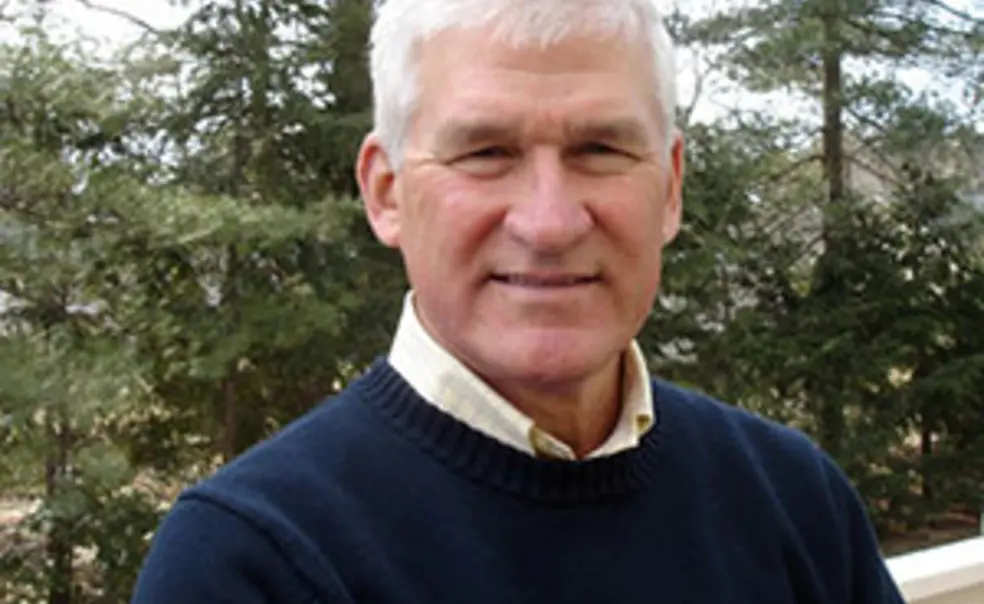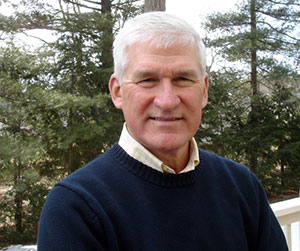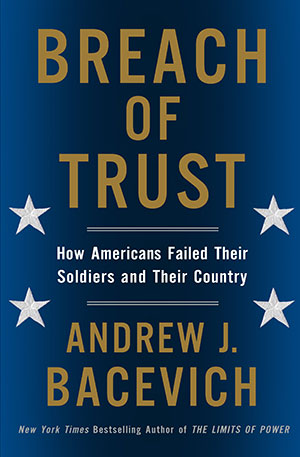Growing up during the early part of the Cold War to parents who both were veterans, Andrew Bacevich *82 took patriotism for granted. “Military service was honored,” he recalls. Bacevich attended West Point and served in Vietnam. He remained in the Army until 1992, retiring as a colonel.
The military is radically different today than when Bacevich entered it, due to a landmark change that took place 40 years ago — an end to the draft and the advent of an all-volunteer force. The change was inevitable, he says, and in some ways the military today has “a greater level of competence, discipline, and durability.” But the change also brought a host of troublesome consequences — shifts that are the focus of Bacevich’s new book, Breach of Trust: How Americans Failed Their Soldiers and Their Country (Metropolitan Books).
As Bacevich sees it, the fundamental problem is the chasm between Americans who have experienced the military and those who haven’t.
“When you look at the military from the inside, you have a better appreciation of its warts,” he says. At the same time, “you have a clearer understanding of some of the good things about military service, military life, and the people who choose to serve the country that way.”
Bacevich argues that because many fewer Americans today are affected directly by war, they have become unrealistic about what the military can and can’t do, and more tolerant of seemingly endless military interventions.
“Recall all the ‘shock-and-awe’ hoopla at the beginning of the Iraq War,” he says. “Too many Americans, encouraged by the media, had bought into the proposition that U.S. forces will necessarily win any war in which they engage, quickly and cheaply. The actual conduct of the wars in Iraq and Afghanistan ought to have demolished such illusions. Instead, Washington chants about the U.S. military being the best the world has ever seen while the average citizen nods in agreement.”
The lack of a connection between many Americans and the military didn’t matter as much in the 1990s, because the interventions the United States undertook were relatively limited — conflicts in places such as Somalia, Haiti, and Kosovo. “But after 9/11, when President George W. Bush declared the global war on terror and decided that it mandated us to invade Iraq,” the military stakes became higher, Bacevich says.
A professor of history and international relations at Boston University, Bacevich considers himself a “war skeptic” — a skepticism forged during his long service in the military. “We should opt for war as a last resort, only to defend our most vital interests,” he says.
Bacevich acknowledges that the reintroduction of the draft is unlikely and probably unwise. Instead, to bridge the chasm, he advocates a program of national service for young Americans that could be completed either in or out of the military: “It’s not simply a way to re-engage people with the military, but also a way to reinvest citizenship with meaning and substance.”














No responses yet